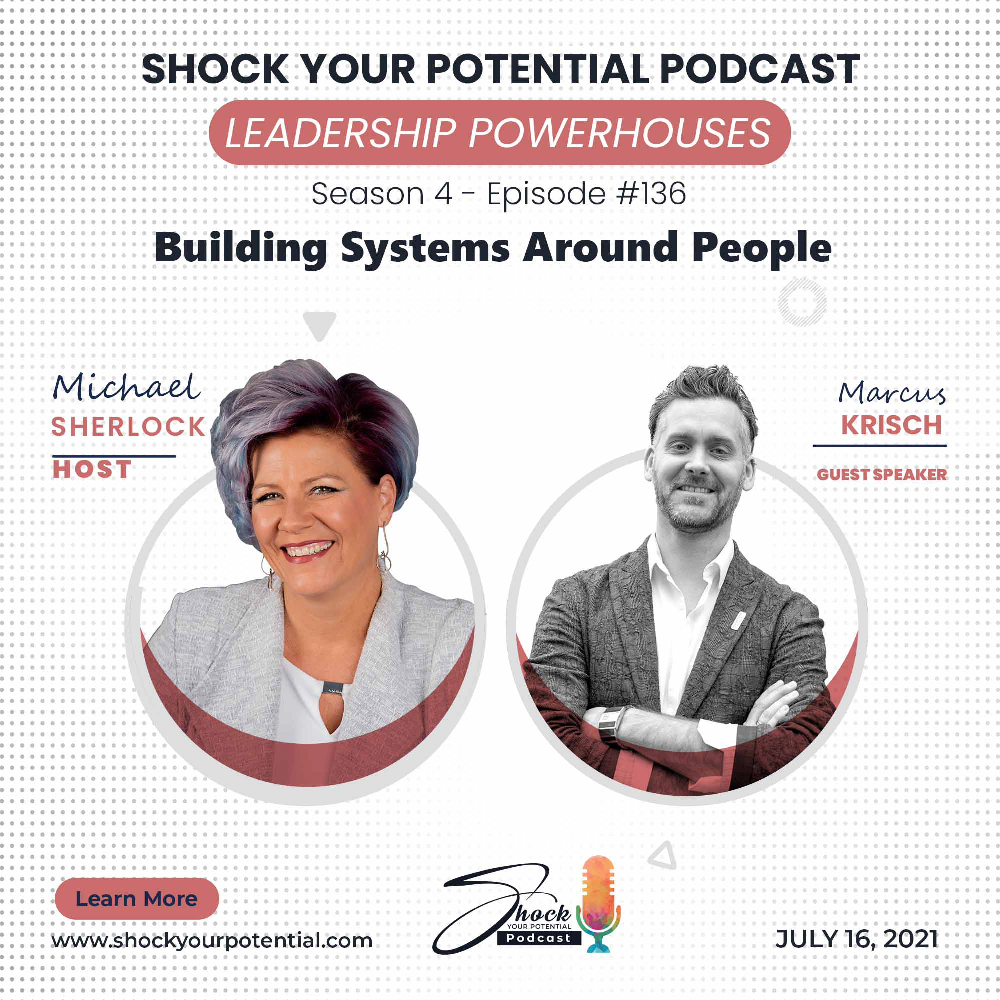“Communicating is the most essential piece in successful change and transformation.” Marcus Kirsch
Organizations have always been faced with complexities that have negatively affected how things get done. The belief by most leaders that technology can solve these complexities and enhance productivity has led to many organizations spending a lot of resources to acquire the latest technology, only for the solution to fail in meeting the expectations. However, research continues to show that the people factor is the key to solving these complexities. Today, our guest, Marcus Kirsch, has been working with organizations to address these complexities and believes that the problem can be addressed only if the focus is shifted to consider people aspects when building organizational designs.
A Royal College of Art alumni and ex-MIT Media Lab Europe researcher, Marcus Kirsch has worked as a transformation, service design, and innovation specialist for over twenty years. With project experience for companies like British Telecom, GlaxoSmithKline, Kraft, McDonald’s, Nationwide, Nissan, Science Museum, P&G, Telekom Italia, and many others, he believes that we need a new narrative, mindset, and way of working to align ourselves with what society needs today. When Marcus is not hard at work, he is a mediocre indoor climber, movie nerd, and maker. He currently resides in London, UK. The Wicked Company is Marcus’s first book.
In today’s episode, our guest will be discussing the people factor, which not only entails those within the organizations but customers as well. He will also use real-life examples to discuss the importance of communication when leading teams to enhance effectiveness.
Listen in!
Social Media
https://twitter.com/wickedandbeyond
https://medium.com/@wickedandbeyond/
https://www.thewickedcompany.com/podcast/
- My background is in art, innovation, and tech, and I have moved over the last twenty years from getting my hands dirty working for a variety of clients and companies to getting more interested in building the context for that kind of work to be able to happen. [2:03]
- When you work in innovation or are in a creative area, you see a lot of ideas that never come to fruition, and sometimes that has to do with the organization itself. [2:23]
- I started to focus on the people aspect of things, and what it actually needs for organizations to thrive and create more value, so I moved into management consulting, and that is what I do today. [2:44]
- When creating things, the people aspect is the more complex aspect, and what I am focused on is the teams who create those things and the leaders who enable them [4:17]
- I had looked at the complexity of creating things and the challenge this has for many years [4:40]
- I found the idea of the wicked problem identified back in the 60s as the problem of urban planning was being solved [4:58]
- Most of today’s problems in social media, services products around people keep evolving because people keep reacting to it. [5:50]
- I looked back at how organizations function and realized that this is probably one of the main reasons why a lot of IT investments and investment in change and transformation just doesn’t work [6:05]
- The big part is a lot of things we can’t quite measure but only check effects which is a lot of emotional aspects around technology behavior and change. [6:42]
- There are interesting new practices out there like service design and behavioral science, which start looking at those aspects as major drivers for things like sales, customer reactions, and how teams are built and thrive. [6:54]
- When we look at the research on change and transformation projects, and we see they have failed to significantly deliver on proposed value, then we know it is not working. [8:08]
- It is nearly an industry in crisis, and the crisis is there because both leadership and people themselves have been organizationally trained not to look at the people aspects. [8:24]
- It has never been easier and cheaper to go out and talk to customers or people in the workplace, so there is no excuse anymore for organizations not to do this. [13:27]
- However, often the echo of the hierarchy is strong, and therefore it still happens, and therefore that is one of the things which we have to let go. [13:48]
- That naturally moves us to a shift of governance and decision making and who we ask. [14:00]
- You have to go out and ask questions not to just make things better for people but to identify crucial things that have been missed out. [18:15]
- One of the principles we adopt when we go into projects is to treat everything as an assumption. [19:17]
- Commercial Break [22:50]
- Communicating is the most essential piece in successful change and transformation [24:12]
- 50 % of successful transformation is about communicating, clarity, and admitting that you don’t know everything but being clear enough with the vision [24:20]
- It is odd to look back 20 years where we were having leaders that tended to be at a higher age and were less familiar with digital than the younger crowd who grew into it; there was less literacy than a digital one [24:42]
- It is important for leaders to understand that they don’t have all the answers and should allow the people who work for them to more heavily contribute which then pushes a different mode of governance. [26:25]
- Acknowledging that you are biased and having your teams being able to question what priority you are setting on certain business values or how to achieve them is important. [27:39]
- Bringing all the language between the different functions together so that they can communicate to each other because if they cannot communicate, then you cannot compare or even have a conversation and therefore can’t make a decision. [28:06]
- This where you want to get to the top and bottom levels of leadership and even, to some extent, include the customer in the process [28:27]
- Sometimes you find the companies or brands have already moved together but oddly enough find that the teams in the organization and leadership are not together. [28:40]
- If the top-level and teams are talking the same language, you can have knowledge transfers that are of major benefits to the organization. [29:55]
- I like simple, practical things and enjoy what people can do, and they can do it when they communicate best together. [33:45]
- The first few steps are exponentially more important than anything after because anything after increases the cost exponentially if gotten wrong. [36:35]
- Don’t glorify busy; take the time to step back and ask why [38:50]
- The risk that organizations are taking by overproducing is dangerous and therefore doesn’t glorify busy but rather give people time to work nine to five. [39:15]
………………………………………………….
Thank you to our July Sponsor: Entrepreneur’s Guide to Financial Well-Being
Imagine starting a long journey without a map…or even a clear idea of the obstacles ahead. But, unfortunately, that’s exactly what it’s like for entrepreneurs who start companies with a lot of passion but without the financial expertise to grow and scale their businesses and create long-term wealth for their families.
Wayne Titus shows you how to find a financial adviser who can help you map a better journey. In his book, The Entrepreneur’s Guide to Financial Well-Being. With the right adviser at your side, you’ll have the freedom to focus on what matters to you.
Get The Entrepreneur’s Guide to Financial Well-Being at Amazon.com and in the virtual bookstore on the Shock Your Potential app.




